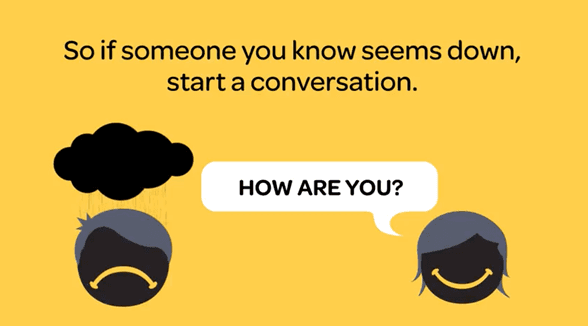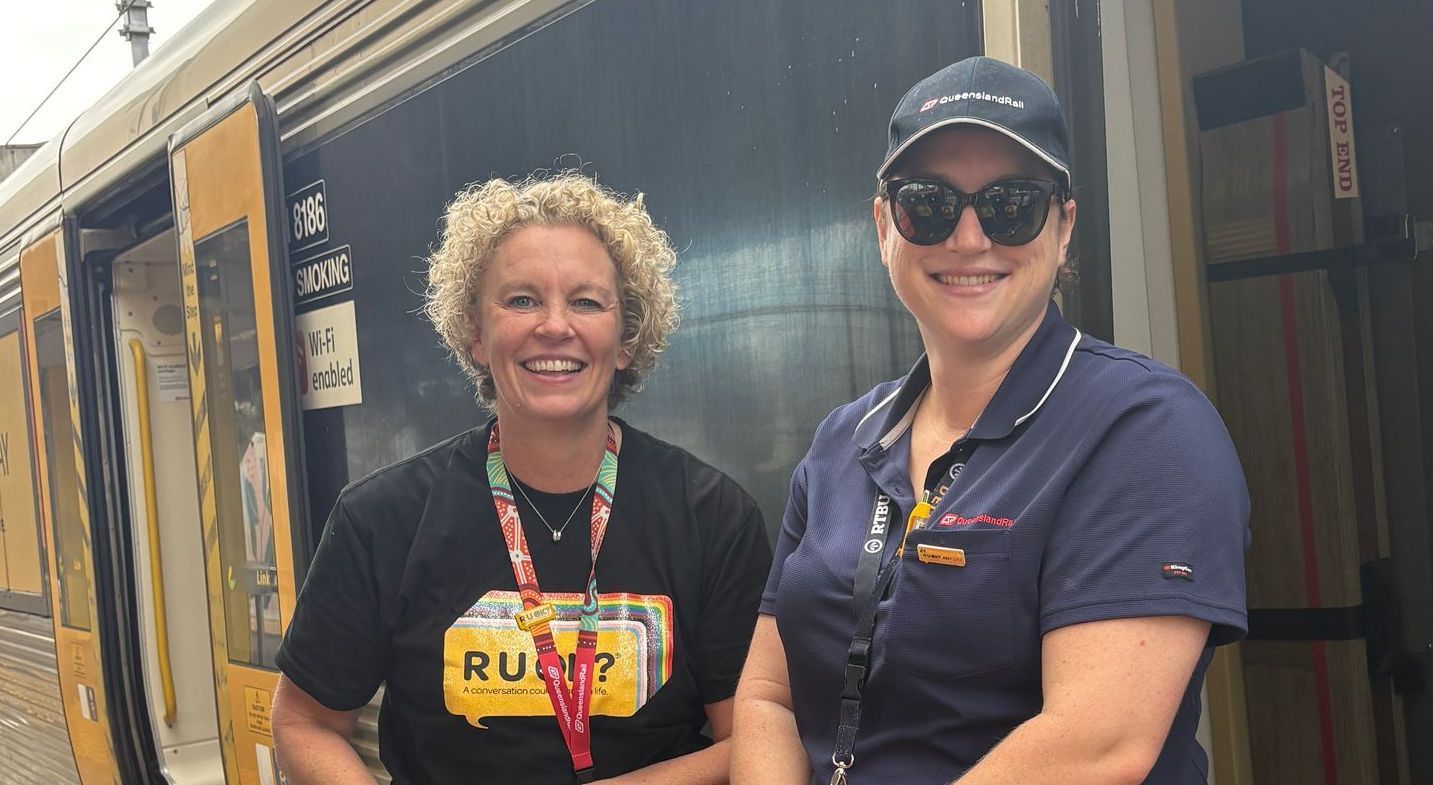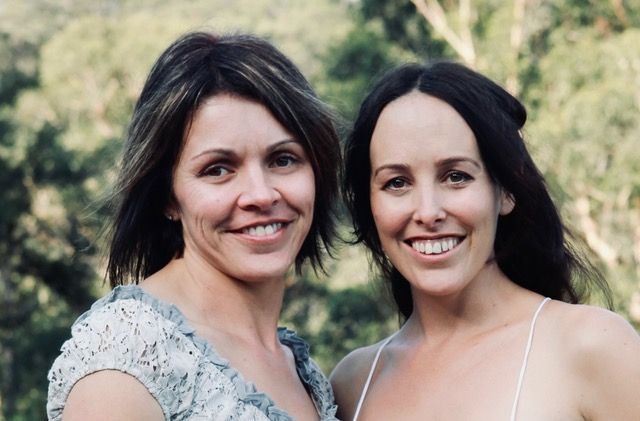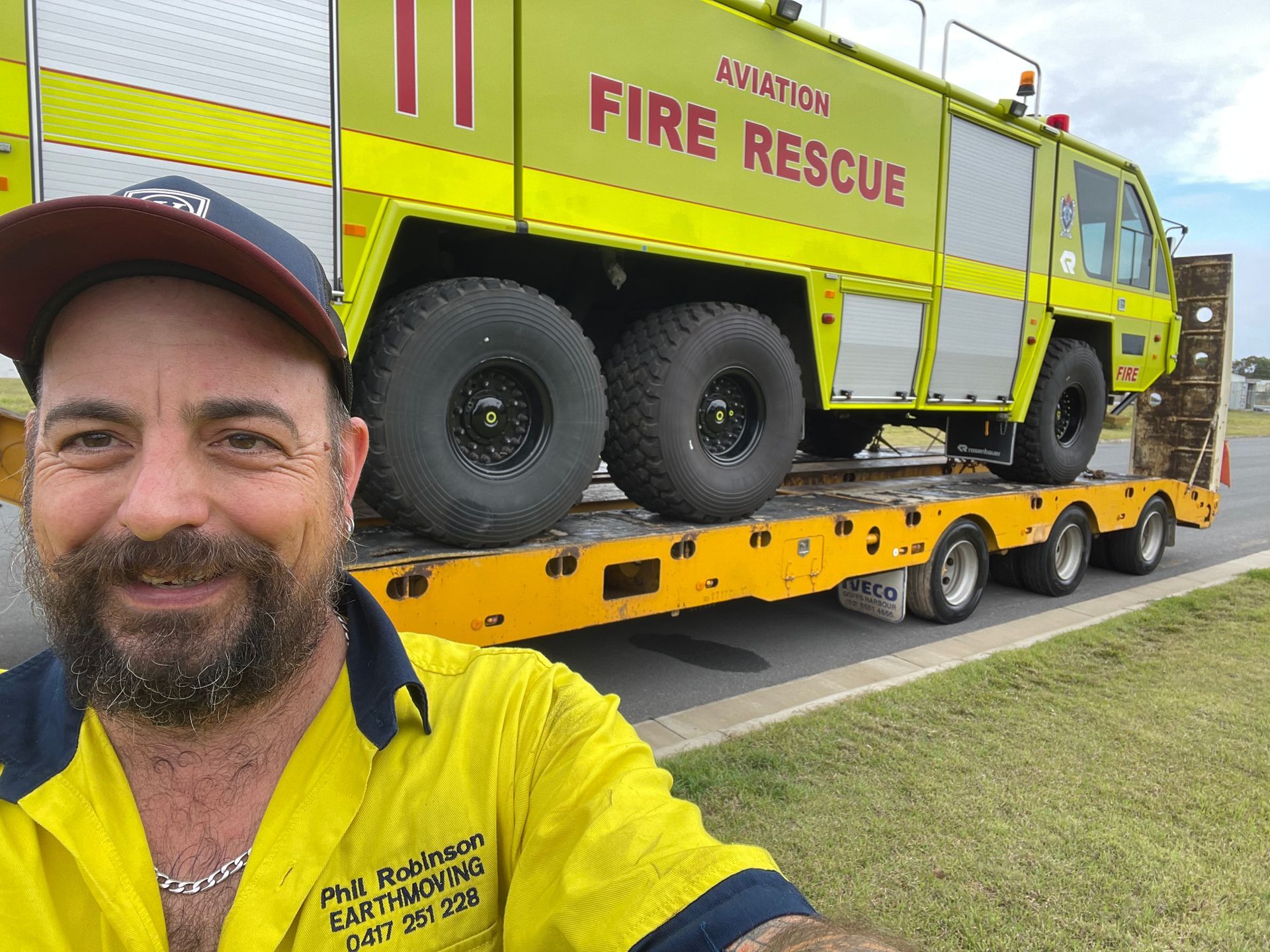| With Christmas just around the corner, celebrations, holidays and catch ups can be a time to relax and enjoy our family and friends, but it can also be a time when loneliness, personal struggles, conflict and loss can raise its head and make us feel vulnerable. R U OK? have designed a series of videos aimed at encouraging men to get comfortable asking their mates if they’re ok. By asking and listening we can show our mates they don’t need to tackle their problems alone and reassure them that help is available. To get the conversation flowing R U OK? are sharing videos, tips and resources across social media using the hashtag; #manspeak.
|
| IT’S a fact that men are statistically less likely to seek help when they are struggling with life, feeling overwhelmed or suffering from mental health issues, than women.
It’s also true that some men try to manage feelings of sadness, stress and emptiness by using alcohol or drugs, withdrawing socially or avoiding situations and past times that once gave them pleasure.
Why is that?
In an ideal world, men who are struggling or in crisis would feel confident and empowered enough to ask for help. But statistics reveal that two thirds of men don’t.
Despite this, men are more likely to talk to mates before a health professional. R U OK? are keen to encourage more opportunities for men to talk comfortably with each other and normalize checking in with someone who appears to be struggling.
A beyondblue report found 50 per cent of men rarely talk about deeper personal issues with mates but almost a third wished they could open up more.
A lot of men want greater openness with their mates but don’t always have the skills to start the conversation or know how to respond when a friend opens up.
To help navigate these conversations - R U OK? have created a video series called # Manspeak.
You can watch the videos here: https://www.youtube.com/playlist?list=PLEmG14uBwEvDVzj7VdEp179Z9B833d1zC
It’s a pattern that doesn’t need to end in tears.
THE latest Australian Bureau of Statistics (ABS) suicide figures for 2015 speak volumes about the need for Australian men to support and talk to each other more, before things get to crisis point.
Suicide is the leading cause of death for both men and women between the ages of 15 and 44, but men aged 85 and over accounted for the highest suicide rate in Australia in 2015 with 68 deaths, then men between the ages of 40 and 44, followed by men aged 45 to 54.
3027 people took their own lives in 2015, an increase from 2684 in 2014.
That’s eight people per day in Australia. Six of those eight are men. Someone’s dad, someone’s mate, someone’s work colleague, a man we love.
When should we check in with our mates?
The study also identified a combined set of behaviors that appeared to set men on a path to suicidal thought. Those were:
-Depressed or anxious mood
-Unhelpful or inflexible beliefs or values about themselves or their circumstances
-Avoidant coping strategies; turning away from problems because they felt unable to fix or deal with them
-Accumulated life stressors like divorce, debt, feeling trapped, loss of job, identity issues, infidelity, addiction, health, stuck in a rut, mental health problems.
|






















